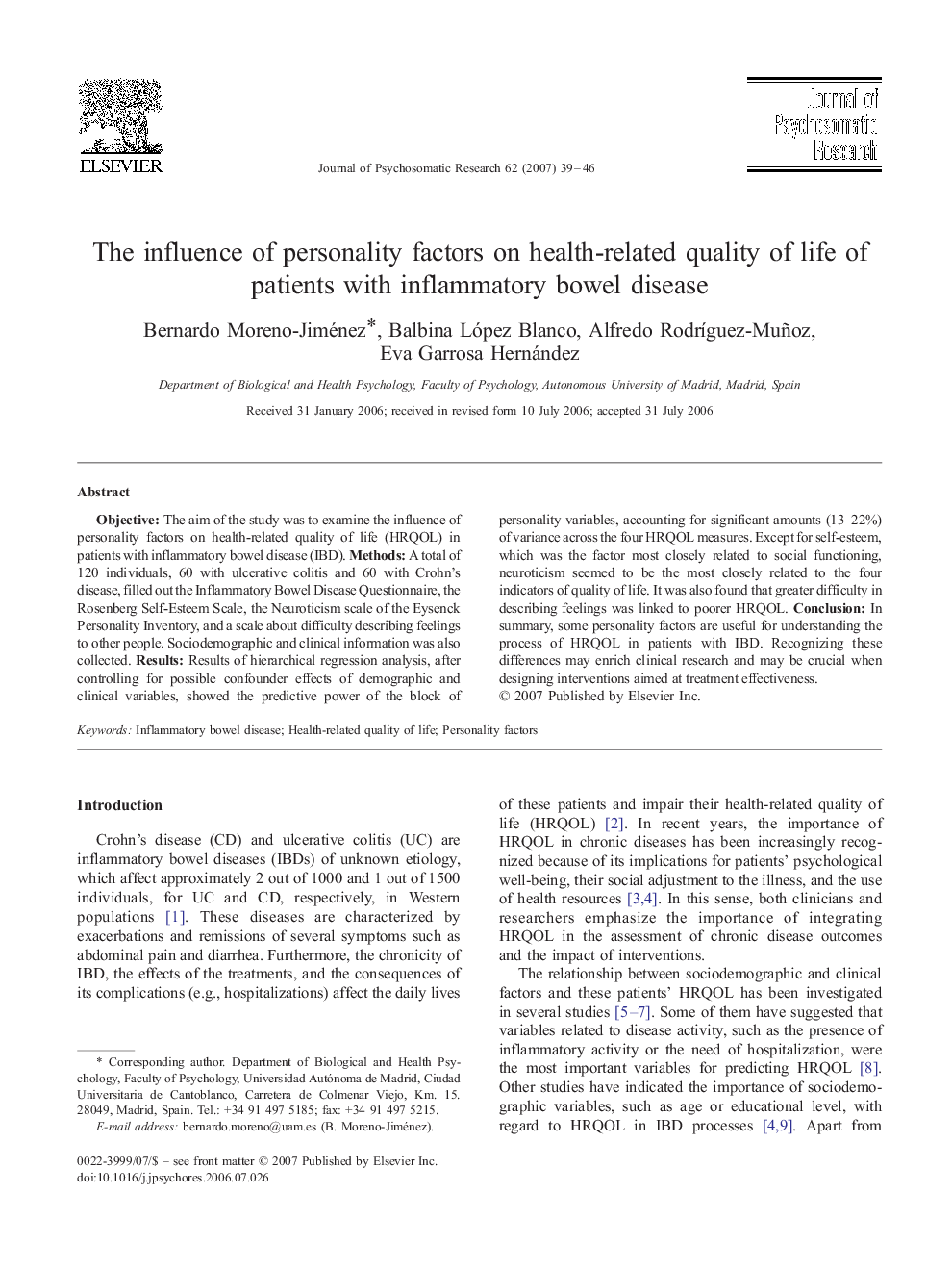| Article ID | Journal | Published Year | Pages | File Type |
|---|---|---|---|---|
| 950676 | Journal of Psychosomatic Research | 2007 | 8 Pages |
ObjectiveThe aim of the study was to examine the influence of personality factors on health-related quality of life (HRQOL) in patients with inflammatory bowel disease (IBD).MethodsA total of 120 individuals, 60 with ulcerative colitis and 60 with Crohn's disease, filled out the Inflammatory Bowel Disease Questionnaire, the Rosenberg Self-Esteem Scale, the Neuroticism scale of the Eysenck Personality Inventory, and a scale about difficulty describing feelings to other people. Sociodemographic and clinical information was also collected.ResultsResults of hierarchical regression analysis, after controlling for possible confounder effects of demographic and clinical variables, showed the predictive power of the block of personality variables, accounting for significant amounts (13–22%) of variance across the four HRQOL measures. Except for self-esteem, which was the factor most closely related to social functioning, neuroticism seemed to be the most closely related to the four indicators of quality of life. It was also found that greater difficulty in describing feelings was linked to poorer HRQOL.ConclusionIn summary, some personality factors are useful for understanding the process of HRQOL in patients with IBD. Recognizing these differences may enrich clinical research and may be crucial when designing interventions aimed at treatment effectiveness.
